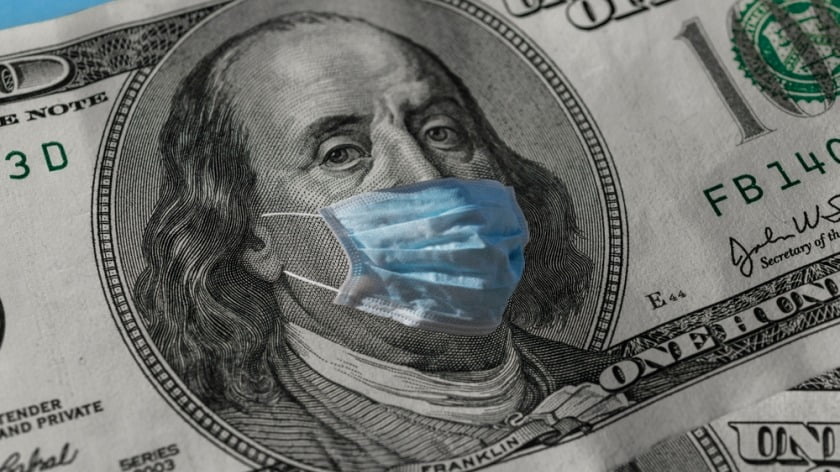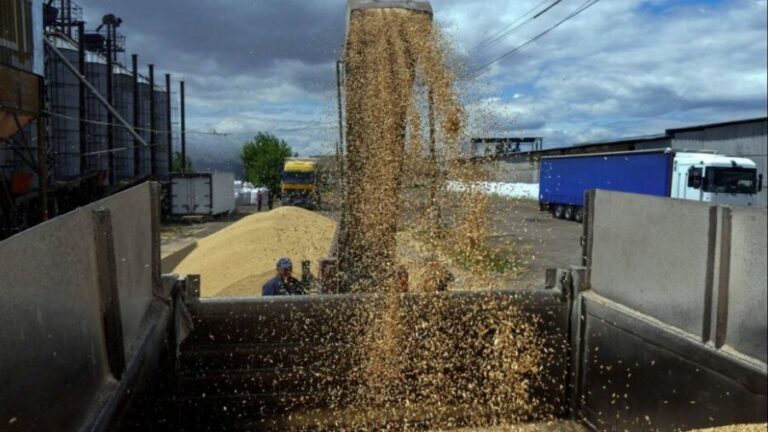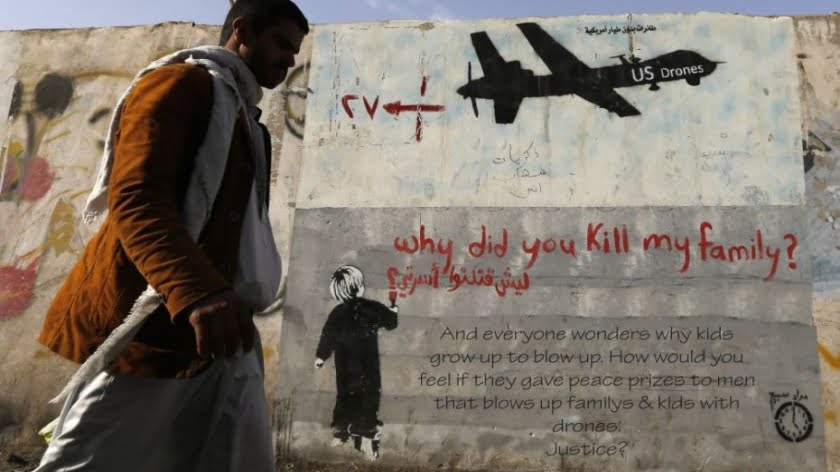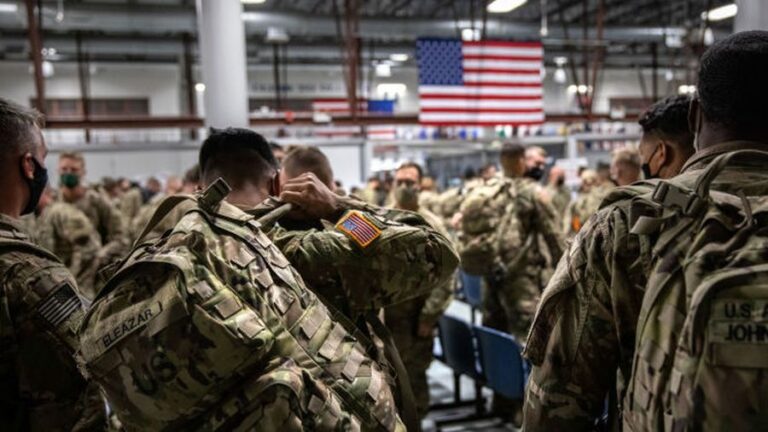Death and the Economy: A Dialogue
Welcome to Chewing the Fat, our weekly talk show here at WXYZ.
Today, we have a special treat for you — two guests who will answer the question on everyone’s mind. Should we stay at home in virtual quarantine or should we head out the front door and reopen the economy?
The coronavirus pandemic is still claiming lives — nearly a thousand a day here in the United States. But other countries, like New Zealand, have effectively eradicated the disease. There is a huge disparity within countries as well, within states, even within cities. And some countries that have loosened their quarantine restrictions, like China and South Korea, have seen fresh outbreaks of the disease.
Meanwhile, the global economy has taken a major hit. GDP has dropped deeper and faster than at any time since the Great Depression. Unemployment here in the United States stands at 15 percent and rising. People don’t know if they’ll keep their current jobs, get their old jobs back, ever get a job again. The government can print money to keep things going, but individuals can’t do that. A lot of us just don’t know how we’re going to pay the rent or get our next meal.
Frank Jacobs is a Texas legislator, a businessman, and a vocal advocate of re-opening the economy. Frank, you’ve been talking about the Texas Solution. Tell us about that.
Frank Jacobs: I own a chain of 15 movie theaters across this great state of Texas. We opened up five of those this last weekend. This is what I told customers. I said: Take your mask off and relax. Breathe in some great buttery popcorn smells, watch a great movie, and just enjoy some time with your family. And that’s what I’ve been saying to people all over the state as part of what I call the Texas Solution. Here in Texas —
Cassandra Jones: Are you crazy?!
That’s our other guest, Cassandra Jones, an infectious disease specialist at the Centers for Disease Control in Atlanta.
Cassandra: The number of coronavirus cases is rising in your state. And that’s even before your governor declared your reopening. And you’re not testing enough in Texas, not compared to other states and not compared to what you need to be testing in order to safely reopen the economy.
Frank: Well, let me tell you that in our movie theaters, we are taking every precaution and then some. Everyone will be six feet or more away from each other. We’ll be cleaning every surface. It will be a lot safer than going to the supermarket, where people get much closer to each other. We’ll be giving my employees their jobs back and safely providing some much-needed entertainment. If you don’t want to go see a movie, hey, that’s fine. But we’re providing an option for those of us who do.
Cassandra: You’re not talking drive-ins. If someone coughs or sneezes in your enclosed movie theater, the air will circulate any potential viruses to everyone else. And you’re not taking into account all the other interactions that take place because you’re opening up your movie theaters. In the parking lot. On the sidewalks. At the gas station where people are filling up their tanks. At the restaurants where they’re eating before or after the show.
Frank: With all respect, if we don’t start opening up the economy in these small ways, then there won’t be an economy left to reopen. Our approach here in Texas is very careful.
Cassandra: Your governor acknowledges that reopening the economy is going to cause deaths. And your lieutenant governor said that “there’s more important things than living.” He was talking about basically sacrificing lives — the lives of senior citizens, of people of color, of folks with preexisting health conditions — and for what? For making sure that the stock market goes back up? When it comes to the vulnerable members of our community, your Texas Solution sounds a whole lot like the Final Solution.
Frank: Now hold on there. No one is talking about sacrificing people. It’s the opposite. We’re talking about saving lives. Making sure that people have enough money to eat, to feed their children.
Cassandra: But more people are going to die as a result of the relaxation of restrictions. That’s a fact. Suddenly all the people who got bent out of shape about how there were going to be “death panels” because of the Affordable Care Act, now they’ve basically set themselves up as a death panel, deciding on how many people are going to live or die.
Frank: No one is talking about death panels. This is the right to life. Hey, listen, nearly 40,000 people die every year on America’s highways. It’s the leading cause of death for people under the age of 55. But we don’t ban cars. Instead we improve auto safety. We come up with better and better methods of reducing the risk of going out on the roads. And it works. Back in the 1970s, more than 50,000 people a year were dying in car accidents.
Cassandra: A car accident is not an infectious disease. Our models show that, even with the necessary interventions, we’ll have well more than 100,000 deaths in this country. If we relax those controls, the difference would be an order of magnitude.
For our non-scientific listeners, you’re talking about a million, yes? A million deaths.
Cassandra: That’s correct.
Frank: Other countries have been opening up around the world. They’ve taken a sensible approach that balances medical prudence and economic risk. Take a look at Europe. We’re 29 million people in Texas. We’re nearly twice the size of the Netherlands. About 40,000 Dutch have been infected, with over 5,000 dead. But here we’ve only had a little more than a thousand deaths and fewer than 40,000 infections. And, look, the Dutch opened up their primary schools and day care centers last month.
Cassandra: The countries you’re talking about have seen a substantial reduction in the infection rate. Netherlands has cut infections from over 1,000 a day to less than 300 a day. Italy was seeing over 6,000 new infections a day back in March. They’re now under 1,000 a day. The same with Spain, with Germany. These countries have much more robust systems of testing and contact tracing than we have in the United States. We are almost completely in the dark here in this country as to the real spread of this disease. In Europe, they’re operating in a much more information-rich environment.
Frank: Hats off to those Europeans. But here in America, we can make decisions for ourselves. We don’t need the state telling us what to do. We had a fellow here in Texas at Prestige Ameritech, the last domestic mask producer, who was all ready to restart production of N-95 masks way back in January. He notified the federal government, and they just blew him off. All that bureaucracy and red tape: it’s heartbreaking. Here in Texas, we know not to depend on government. We believe more in individual responsibility.
Cassandra: Individual responsibility? How about all those students on Spring Break partying and spreading the virus? Or that party last weekend in Ft. Worth where 600 people got together to shoot off fireworks and then started shooting each other? Most Americans are taking their responsibilities very seriously by staying home. But all it takes for an infectious disease to spread is a minority of the irresponsible.
Frank: But you don’t have a plan, do you? A plan to reopen the economy? If we listened to you, we’d all starve to death at home. Millions of us! That’s the order of magnitude I’m talking about.
Cassandra: We wait until the infection rate drops substantially. We wait until we have a robust testing and tracing system in place. We wait for more effective treatments, widespread antibody tests, and, ultimately, a vaccine.
Frank: Wait. Wait. Wait. A lot of us don’t have the luxury of waiting. You have a job, Ms. Jones, that you can no doubt do from home. You are in a comfortable place where you can wait. The rest of us depend on going back to factories, to running restaurants, to building houses.
Cassandra: I’m not saying that we can’t reopen the economy. I’m saying that we have to do so responsibly.
Frank: Well, here’s something to chew on. People die because of the economy all the time. They die in workplace accidents. They die commuting to work. They die because of air pollution caused by factories and cars and energy production. Every morning we get out of bed in the morning, we are taking a risk. Living is a risk.
Cassandra: That may be true. But some folks are at greater risks than others. The counties that are disproportionately African-American account for nearly 60 percent of the coronavirus deaths. In New York City, 70 percent of the essential workers are people of color.
Frank: Here in Texas, by opening up the state, we’re actually spreading that risk around!
Cassandra: You’re spreading the risk by spreading the disease.
Frank: You liberal types are always pointing to Sweden as the model the United States should be emulating. So, what about the Swedish model of tackling this pandemic? The government is full of social democrats and Greens. All lefty types. But there’s no lockdown. You can eat out at a restaurant. The schools remain open. Sure, there are some common-sense restrictions, like no gatherings larger than 50 people and no visits to nursing homes. They’ve had more deaths than neighboring Norway, which went for a complete lockdown. But the Swedes also haven’t ruined their economy.
Cassandra: But Sweden also has a very robust testing system. And contact tracing. They have a much stronger social safety net than we have here in the United States, with paid sick leave for workers. And people there complied with the voluntary distancing recommendations. What works for Sweden won’t work for Texas. Unless you’re planning to put in place a strong social safety net and rein in some of that good ol’ boy individualism.
Armed militia members in Texas are demonstrating around the state on behalf of non-essential businesses that want to open up.
Frank: Well, we’re definitely not sheep down here in Texas. Just because the government says something doesn’t mean it’s right. And I say that as a representative of government. The bottom line is that we can’t know for sure about my plan or anyone else’s plan unless we test them. You’re all for testing, right?
Cassandra: That’s not what I meant.
Frank: Every year more than 2,000 infants die in this state. That’s twice as many lives as the coronavirus has claimed. It doesn’t make any of us happy. We’ve reduced those numbers over the last decade, but we can’t get it to zero tomorrow. Everyone says that this virus is going to be with us for a long time. So, we have to figure out a way to live with it as well.
Cassandra: Or die with it.
Frank: Well, some people are going to die. But most of the deaths in Texas have been in nursing homes, prisons, and meatpacking plants. The governor is sending surge response teams to those hotspots to contain them. It seems more sensible to me to focus attention on containing the hotspots than trying to keep everyone under house arrest.
Cassandra: You’re basically saying that old people, prisoners, and low-income workers are expendable. That’s a cruel and disgusting policy. And it’s not even effective. The virus doesn’t stay in hot zones. By opening up the state, you’re providing the virus with millions more hosts to infect. And that will mean a lot more deaths, and not just in institutional settings.
Frank: Look, the Pilgrims knew that some of them were going to die on the ships coming over here from England. The settlers of the westward expansion knew that some of them were not going to make it to California. And our soldiers knew that some of them were going to die defending democracy overseas. That’s what it means to be American. We take risks. Live free or die, right?
Cassandra: All of those people volunteered. They knew the risks. And when they took those risks, they weren’t endangering their whole community. Increasing exposure to the coronavirus is a whole different category of risk. My grandmother is not volunteering to fight overseas or drive a covered wagon across the Great Plains. But these new state directives put her at risk.
Frank: I wouldn’t recommend that your grandmother go out to see a movie any time soon. Or go to a restaurant. At-risk populations probably shouldn’t be taking the risks that you or I can take.
Cassandra: You still don’t see that these are not individual risks —
Frank: And you still don’t see the importance of individual choice —
Well, we’ve run out of time, folks. On this show and maybe in this country as well. We’re facing the greatest threat to America in a generation, in two or three generations, and we can’t figure out how to pull together and get the job done?
This is not the America I know. But maybe the America I know just doesn’t exist anymore.
By John Feffer
Source: Foreign Policy In Focus







